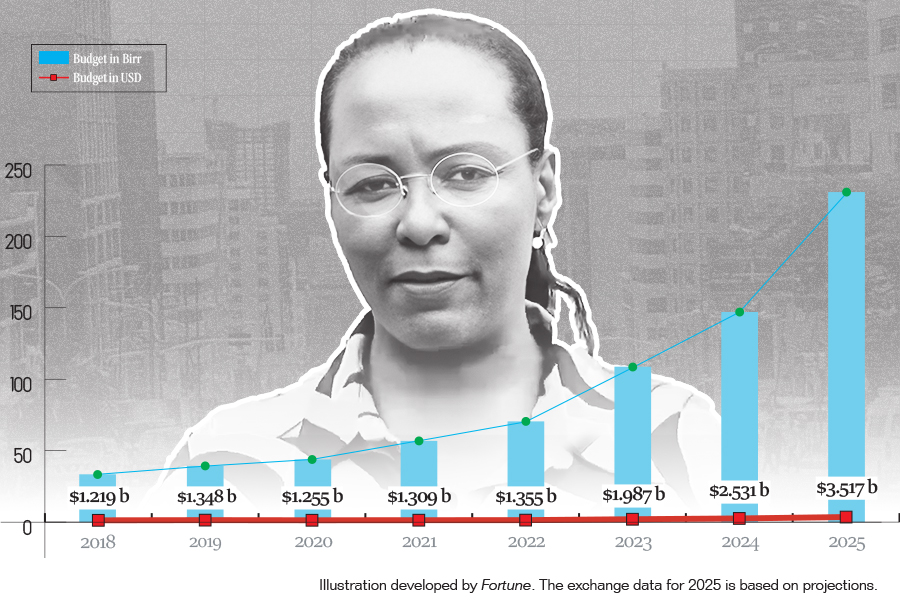
My Opinion | Dec 19,2021
May 23 , 2021
By Zelalem Bezabih
In the current globalised world, taking account of the number and quality of the labour force is mandatory. What we cannot escape, we should find a way to get the best out of it. One way of doing this is making employment a central objective of macroeconomic and social policies.
Good economic performance does not necessarily translate into improved employment situations. Policies are needed to enrich the employment content of the growth process, particularly by raising employability and reducing overall unemployment. High unemployment rates coupled with the increasing rate of the young population on the continent calls for urgent action at all levels. The latest unemployment figures in Ethiopia are concerning. Although exact figures are hard to come by, it is believed to stand anywhere between a fifth to a third of adults in the country.
These figures are daunting precisely because these unemployment figures are partly a result of skills mismatch within the labour market. Labour regulations are different across the globe depending on economic status and political dispositions. Making sure employers and employees are fairly benefited is often used as a benchmark to induce equilibrium.
As in many developing countries, the labour market has contradicting features in Ethiopia. Even though there are lots of graduated youth actively searching for a job, a platform for their skills is missing. On the contrary, the market suffers from a lack of youth trained in the necessary skills. This is living proof of the need to revise our higher education curriculum to produce a labour force that fits market needs.
Evidence of this is the cement manufacturing industry, whose leaders continue to complain of the absence of appropriately skilled labour. It is no secret that most of the mega factories in the country are still operated by expats who are often paid with precious hard currency. In this regard, India and China make up for a large aggregate technical labor force.
The underlying understanding behind expats employment is simply skill and technology transfer, which is often time-bounded. However, their stay is often extended beyond initial agreements.
One can also find an example of this in the recent contract extensions for foreign nationals and consultants by the Ethiopian Railway Corporation following a failure to train local technicians.
Other major reasons for the rampant unemployment include rising population, inadequate business skills, lack of regulatory frameworks and access to finance, as well as a shortage of sustained administrative support.
During the past decade or so, increased public investment has helped reduce unemployment. Unfortunately, this has come through a government that was incurring massive amounts of debt, resulting in macroeconomic imbalance and unsustainable economic growth. Recently, the global economic downturn caused by COVID-19 and political unrest across the country have not improved upon matters.
In terms of policy, the labour market has not been treated as a component of the economy that is intricately linked to markets for capital, goods, and services. The failure to generate job opportunities is one thing. It is a symptom of overall economic mismanagement. But the inability to connect existing skill to demand in the market is a showcase of a dearth of systematic approach.
It is flabbergasting to find that, at times, although the higher learning institutes graduate the much-needed labour, the structural and legal bottlenecks in policies are making valuable workforce go to waste. Look no further for evidence of this than the medical profession. No matter that Ethiopia is still ranked amongst the lowest among African nations in terms of density of healthcare personnel, with 0.3 physicians and two nurses for every 10,000 people. It is a country where doctors are having a hard time finding employment opportunities.
Labour force and markets are not well aligned. Skills and labour force inventory is not nationally known despite being one of the critical issues necessary for addressing overall unemployment in the economy. Although industries want to hire, there is no platform to procure the needed skilled labour. This, in turn, creates an added cost of recruitment and reluctance from the industry owner’s perspective.
The labour market follows the same logic of supply and demand that other goods and services make use of. The jobs could be there for the taking and the skilled workforce out there for hire. As long as there is an information asymmetry, neither will find the other in a way that promotes economic efficiency. But for this occur, there needs to be private sector competition where skill is in high demand. This will not happen as long as some markets are monopolised or if connections and political affiliations are more profitable investments to employers rather than factors such as business agility.
PUBLISHED ON
May 23,2021 [ VOL
22 , NO
1099]


My Opinion | Dec 19,2021

Radar | Sep 10,2021

Fortune News | Jun 12,2021

View From Arada | Dec 19,2021

Fortune News | Jan 22,2022

Fortune News | Jul 21,2024

Radar | Mar 28,2020

Featured | Jun 21,2021

Radar | Sep 10,2021

Radar | Jun 19,2021

My Opinion | 131970 Views | Aug 14,2021

My Opinion | 128359 Views | Aug 21,2021

My Opinion | 126297 Views | Sep 10,2021

My Opinion | 123913 Views | Aug 07,2021

Dec 22 , 2024 . By TIZITA SHEWAFERAW
Charged with transforming colossal state-owned enterprises into modern and competitiv...

Aug 18 , 2024 . By AKSAH ITALO
Although predictable Yonas Zerihun's job in the ride-hailing service is not immune to...

Jul 28 , 2024 . By TIZITA SHEWAFERAW
Unhabitual, perhaps too many, Samuel Gebreyohannes, 38, used to occasionally enjoy a couple of beers at breakfast. However, he recently swit...

Jul 13 , 2024 . By AKSAH ITALO
Investors who rely on tractors, trucks, and field vehicles for commuting, transporting commodities, and f...

Jul 5 , 2025
Six years ago, Ethiopia was the darling of international liberal commentators. A year...

Jun 28 , 2025
Meseret Damtie, the assertive auditor general, has never been shy about naming names...

Jun 21 , 2025
A well-worn adage says, “Budget is not destiny, but it is direction.” Examining t...

Jun 14 , 2025
Yet again, the Horn of Africa is bracing for trouble. A region already frayed by wars...

Jul 6 , 2025 . By BEZAWIT HULUAGER
The federal legislature gave Prime Minister Abiy Ahmed (PhD) what he wanted: a 1.9 tr...

Jul 6 , 2025 . By YITBAREK GETACHEW
In a city rising skyward at breakneck speed, a reckoning has arrived. Authorities in...

Jul 6 , 2025 . By NAHOM AYELE
A landmark directive from the Ministry of Finance signals a paradigm shift in the cou...

Jul 6 , 2025 . By NAHOM AYELE
Awash Bank has announced plans to establish a dedicated investment banking subsidiary...